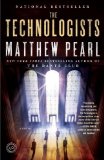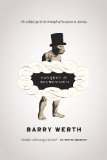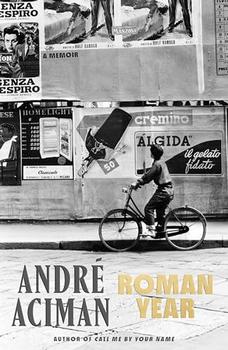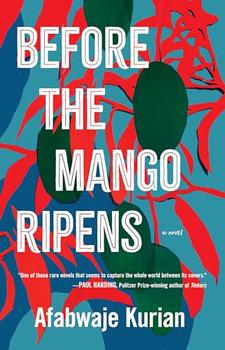Summary | Excerpt | Reading Guide | Reviews | Beyond the book | Read-Alikes | Genres & Themes | Author Bio

From the two-time Booker Prize–winning author comes an irrepressibly funny new novel set in early nineteenth-century America.
Olivier—an improvisation on the life of Alexis de Tocqueville—is the traumatized child of aristocratic survivors of the French Revolution. Parrot is the motherless son of an itinerant English printer. They are born on different sides of history, but their lives will be connected by an enigmatic one-armed marquis.
When Olivier sets sail for the nascent United States—ostensibly to make a study of the penal system, but more precisely to save his neck from one more revolution—Parrot will be there, too: as spy for the marquis, and as protector, foe, and foil for Olivier.
As the narrative shifts between the perspectives of Parrot and Olivier, between their picaresque adventures apart and together—in love and politics, prisons and finance, homelands and brave new lands—a most unlikely friendship begins to take hold. And with their story, Peter Carey explores the experiment of American democracy with dazzling inventiveness and with all the richness and surprise of characterization, imagery, and language that we have come to expect from this superlative writer.
Parrot
i
You might think, who is this, and I might say, this is God
and what are you to do? Or I might say, a bird! Or I could tell
you, madame, monsieur, sir, madam, how this name was
given to me—I was christened Parrot because my hair was colored carrot,
because my skin was burned to feathers, and when I tumbled
down into the whaler, the coxswain yelled, Here’s a parrot, captain. So
it seems you have your answer, but you don’t.
I had been named Parrot as a child, when my skin was still pale and
tender as a maiden’s breast, and I was still Parrot in 1793, when Olivier
de Bah-bah Garmont was not even a twinkle in his father’s eye.
To belabor the point, sir, I was and am distinctly senior to that
unborn child.
In 1793 the French were chopping off each other’s heads and I was
already twelve years of age and my endodermis naturalus had become
scrubbed and hardened by the wind and mists of Dartmoor, from
whose vastness my da and I ...
[A] rich, intricate historical novel which places two very different foreigners in the middle of a completely alien society: American democracy in its infancy... These dissimilar characters allow readers to take a step back from what they know of this early period in United States history to experience it from two disparate, contrasting viewpoints, creating a sense of freshness and nostalgia for a more innocent America, the land of opportunity where anything is possible... The novel requires concentration and thought from its readers, and so it should be reserved for those in the mood for something a little heavy (think literary steak versus ice cream)...continued
Full Review
 (631 words)
(631 words)
(Reviewed by Kim Kovacs).
 Alexis-Charles-Henri Clérel de Tocqueville was born in Paris on July 29, 1805. His parents, both of aristocratic background, narrowly avoided the guillotine during the aftermath of the French Revolution, and were exiled to England. They were later able to return to France during the reign of Napoleon. His father supported the Bourbon monarchy, eventually becoming Prefect of Versailles in 1826 and made a peer by Charles X in 1827.
Alexis-Charles-Henri Clérel de Tocqueville was born in Paris on July 29, 1805. His parents, both of aristocratic background, narrowly avoided the guillotine during the aftermath of the French Revolution, and were exiled to England. They were later able to return to France during the reign of Napoleon. His father supported the Bourbon monarchy, eventually becoming Prefect of Versailles in 1826 and made a peer by Charles X in 1827.
Tocqueville entered the College Royal in Metz in 1821, at the age of 16, to study philosophy, and it was during these years that he began having doubts about the role of the aristocracy's role in France's government. He moved to Paris in 1823 to study law, and in 1827 became apprentice magistrate at the ...

If you liked Parrot and Olivier in America, try these:

by Matthew Pearl
Published 2012
The acclaimed author of The Dante Club reinvigorates the historical thriller. Matthew Pearl's spellbinding new novel transports readers to tumultuous nineteenth-century Boston, where the word "technology" represents a bold and frightening new concept.

by Barry Werth
Published 2011
In Banquet at Delmonico’s, Barry Werth, the acclaimed author of The Scarlet Professor, draws readers inside the circle of philosophers, scientists, politicians, businessmen, clergymen, and scholars who brought Charles Darwin’s controversial ideas to America in the crucial years after the Civil War.




The truth does not change according to our ability to stomach it
Click Here to find out who said this, as well as discovering other famous literary quotes!